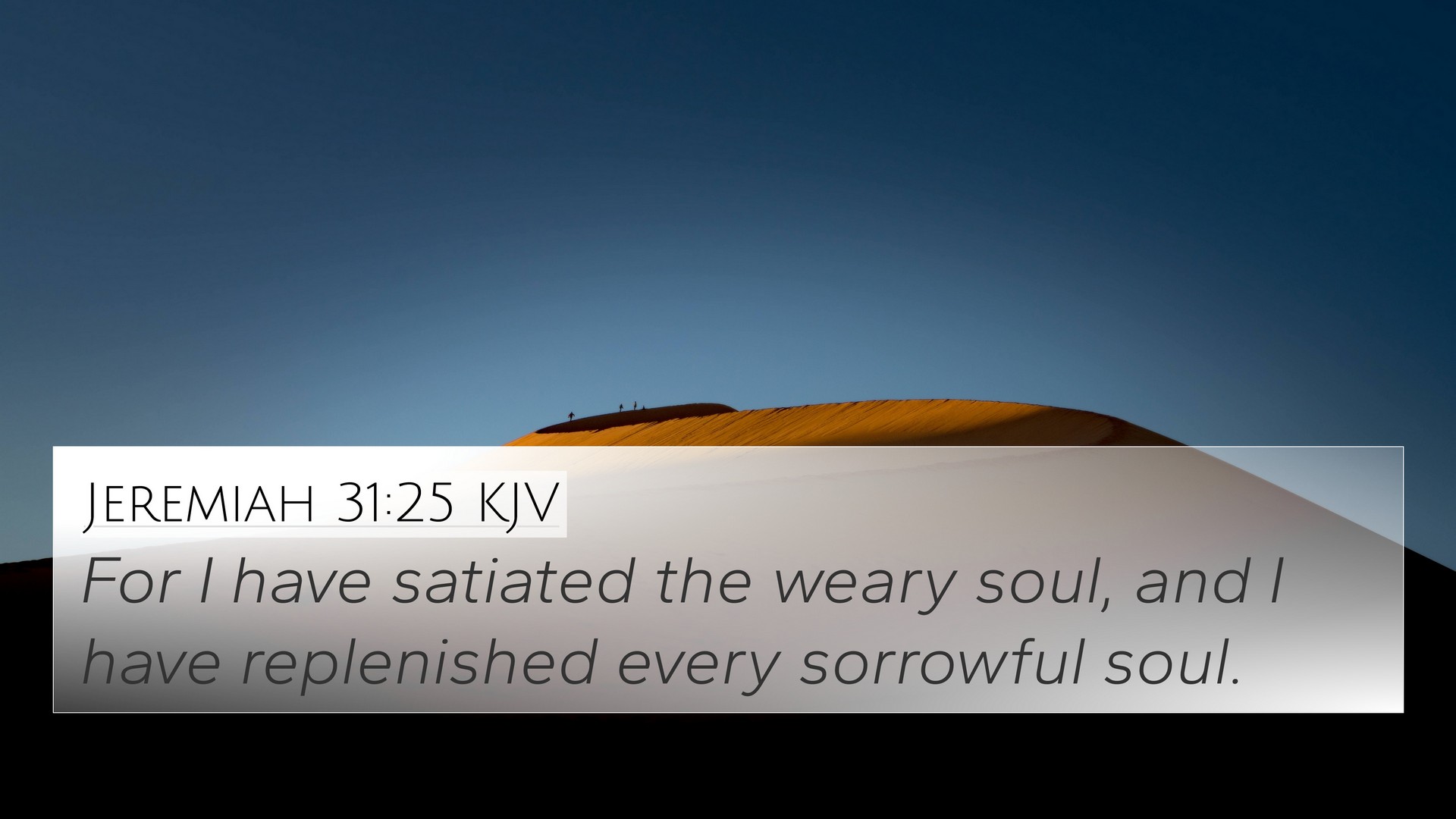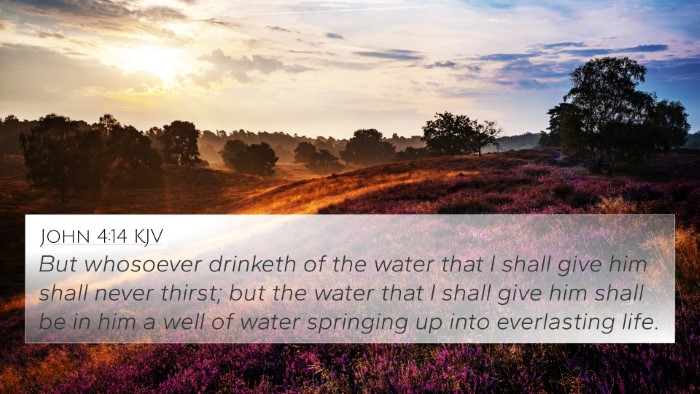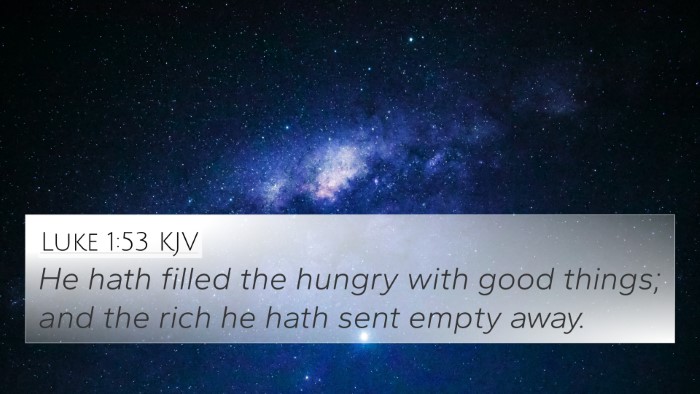Bible Verse Meaning: Jeremiah 31:25
Verse Text: "For I satisfy the weary soul, and every languishing soul I will replenish." (Jeremiah 31:25, ESV)
Overview and Context
Jeremiah is known as the weeping prophet, and in this verse, he speaks of a future restoration of Israel after their exile. This verse provides a profound insight into God’s capacity to provide comfort and renewal to those who are weary and distressed.
Interpretation and Analysis
This verse reveals key themes of divine compassion and sustenance. God promises to meet the needs of those who are weary, suggesting that rest and rejuvenation are not only physical but also spiritual. In various public domain commentaries, we find deeper insights:
- Matthew Henry: He emphasizes that God is attentive to the needs of the soul, indicating that spiritual refreshment comes from Him. Jeremiah’s words assure the people that God will restore them not just physically but also spiritually.
- Albert Barnes: He notes that the "weary soul" represents those burdened by sin or sorrow. God’s assurance of replenishment indicates a promise of forgiveness and healing for those who seek Him.
- Adam Clarke: Clarke points out that this verse speaks to God’s character as one who comforts the afflicted. It serves as a reminder of God’s unending grace and mercy toward His people, promising renewal in times of despair.
Thematic Connections
This verse can be connected to several themes prevalent in the Bible:
- Divine Comfort: God’s promise to satisfy the weary resonates with 2 Corinthians 1:3-4, where God is described as the "Father of mercies" who comforts us in our troubles.
- Renewal: Similar to Psalms 23:2-3, which portrays God as a shepherd who leads to rest and restoration, further highlighting the theme of spiritual replenishment.
- Hope for the Oppressed: Isaiah 40:29-31 provides reassurance to those who feel weary that God gives strength to the faint.
- God’s Provision: Matthew 11:28-30 invites the weary to come to Jesus for rest, linking Christ’s mission with the prophetic hope found in Jeremiah.
- Spiritual Rejuvenation: In John 4:14, Jesus speaks of living water which quenches thirst eternally, paralleling the idea of spiritual satisfaction.
Cross-references and Related Scriptures
When examining Jeremiah 31:25, it is useful to refer to these cross-referenced Bible verses to gain a fuller understanding:
- Isaiah 57:15 - God dwells with the humble and contrite, providing comfort to the downcast.
- Psalms 42:1-2 - The longing of the soul for God is echoed in the deep need for spiritual fulfillment.
- Matthew 5:6 - "Blessed are those who hunger and thirst for righteousness, for they shall be satisfied," reinforcing the promise of divine satisfaction.
- Romans 15:13 - The God of hope fills believers with joy and peace in believing, leading to overflow through the Holy Spirit.
- Psalms 23 - The motif of God as a shepherd caring for the soul speaks to the replenishment promised in Jeremiah.
- Revelation 21:6 - God states, "To the thirsty I will give from the spring of the water of life without payment," which aligns with the theme of divine sustenance.
- Philippians 4:19 - Assurance that God will supply every need, echoing the sentiment of Jeremiah's promise of replenishment.
Application and Reflection
This verse serves as a powerful reminder of God’s ongoing commitment to provide for our spiritual needs. In moments of despair, believers can take comfort in knowing that God is attentive to their cries for help and refreshment. Reflecting on the connections between these scripture passages encourages deeper study and understanding of God’s plan for restoration.
Conclusion
Jeremiah 31:25 encapsulates God’s promise to satisfy the weary and replenish the soul, a theme that resonates throughout the scriptures. By employing tools for Bible cross-referencing and engaging in comparative Bible verse analysis, one can unveil the rich tapestry of connections that exist within the biblical texts, enhancing one's understanding of divine love, mercy, and the promise of renewal.











